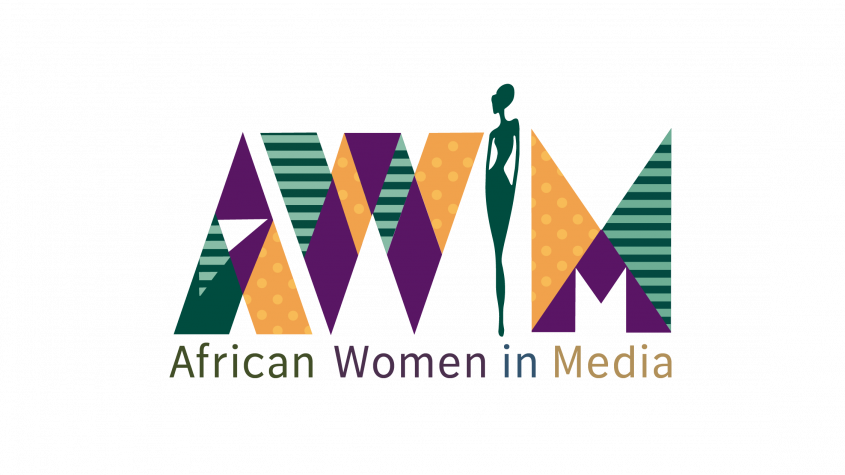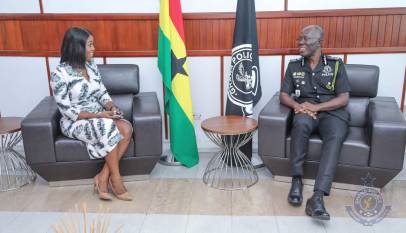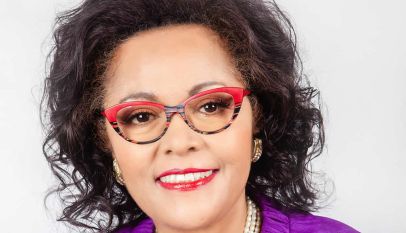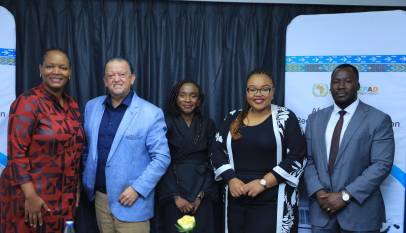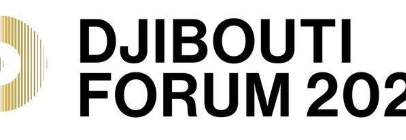SPOTLIGHT | Dr Yemisi Akinbobola: Champion of women’s voice in African media
Dr Yemisi Akinbobola, CNN African Journalist Award winner cum one of Avance Media’s 100 Most Influential African Women 2021, is co-founder of the African Women in the Media (AWiM), focused on creating enabling environment for women in the media and changing their representation in the industry.
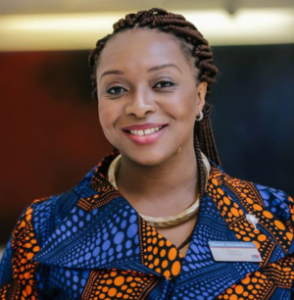
Like other professional industries on the continent, Africa’s media is a deeply patriarchal space – both in terms of access to opportunities and the way women are represented in news reporting. Whereas this label perfectly fits the mainstream media, the new media itself does not escape accusations of biased and gendered depiction of women.
Against this backdrop, the Beijing Declaration and Platform for Action (BDPA) champions increased participation of women in media-related decision-making as well as their access to expression through the mainstream and ICT-based media. Also, continental frameworks such as the African Charter on Human and Peoples Rights (the Banjul Charter) and its accompanying Protocol to the African Charter on Human and Peoples Rights on the Rights of Women in Africa espouse the fundamentals of gender equality among men and women.
Yet, according to the 2015 Global Media Monitoring Project, despite constituting roughly half of the continent’s population and more than half of its news consumers, women’s coverage in Africa’s news media had merely increased from 19% in 2010 to 22% in 2015. Research shows women journalists often get soft news beats like health and fashion while men take the hard beats such as politics and economy. In addition, more men get featured as sources of news and analysis than women.
Enters Dr Yemisi Akinbobola
It was in this deeply patriarchal African media landscape that Dr Yemisi Akinbobola, a journalist, academic and winner of the CNN African Journalist Award had practiced journalism for years. Ultimately, the passion for changing this unfavorable status quo led to her co-founding of the international media NGO, African Women in the Media (AWiM), focused on creating enabling environment for African women in media industries, on the one hand; and changing the way African women are represented in the media, on the other hand.
Dr Akinbobola holds a doctorate in media and cultural studies and is presently a senior lecturer at a UK university. Her research interests straddle the intersections of women’s rights and media as well as the media’s role in the Women, Peace and Security (WPS) Agenda. To this end, she was editorial consultant for the landmark UN Security Council Resolution (UNSCR) 1325 on WPS commemorative book: “She Stands for Peace: 20 Years, 20 Journeys.”
Based on the book, she currently hosts #SheStandsForPeace podcast series , an initiative of the UN Office to the AU (UNOAU) exploring the state of the WPS Agenda in Africa through conversations with key actors – from policymakers, to donors, and grassroots peacebuilders.
Dr Akinbobola seems to be a genius at the art of multitasking, one who is able to juggle diverse career pathways namely, her fulltime teaching and research job at Birmingham, UK, running AWiM and the #SheStandsForPeace podcast series as well as being a mother to her three daughters – and still succeeding in doing all! She credits her enviable career pathways to 15 long years of learning the ropes of multitasking and “being passionate about what you do, when you enjoy what you do, it feels less than work and more fun.”
Between 2009 and 2016 Dr Akinbobola had run the blog, IQ4News, focused on Africa-related issues which was eventually rested because “it was not profitable enough to be innovative”. Around this period she also held many freelance reporting and communication roles including stringing for Africa Renewal and interning at CNN. She however identified winning the CNN Multichoice African Journalist Award in 2016 as her career breakout moment.
Dr Akinbobola was co-winner (with Ogechi Ekeanyanwu) of the prestigious award in the sports reporting category for an investigation into the trafficking of West African football players by fake agents. She actually had to send her funding application for the award-winning story the very day she put to bed one of her daughters and started working on the story six weeks later. It was while attending the award ceremony at Johannesburg in October 2016 that the idea to set up AWiM came to her, “to help more African women get the kind of opportunities we had with the CNN award.”
AWiM: From Facebook to international NGO
Dr Akinbobola had started AWiM as a mere Facebook group in August 2016 and by July 2017 AWiM had held its first annual conference in the UK – because she was 8 months pregnant and so could not travel to Africa. In 2018, the annual AWiM conference was held in Nigeria and by 2019 the nonprofit had transitioned to a full-pledged international NGO; the 2019 annual conference was held in partnership with the African Union in Nairobi, Kenya.
“AWiM conferences are all inclusive in terms of age, experience, perspectives and backgrounds of participants. So, participants are not necessarily famous media personalities; we ensure there are seasoned journalists but also young journalists – as long as they have an experience to share. We also make sure the conference does not only focus on gender issues; rather it highlights women as experts on the topics that are relevant to media as well as issues around women’s rights and media innovation,” the AWiM co-founder explains.
Dr Akinbobola says AWiM’s 2019 conference in partnership with the AU was the nonprofit’s breakout moment; it helped create visibility for the then fledgling organisation among stakeholders including UN agencies like UNESCO, IOM and ILO which gave AWiM the opportunity to attract funding and expand its operations. Despite the onset of the Covid-19 pandemic in early 2020, the year turned out the best for the media NGO which launched AWiM Learning, under which over 600 African women in media were trained.
“Thanks to AWiM Learning we’ve developed a pedagogical approach to designing media training, targeting African women in media, considering poor bandwidth and limited access to technology in some parts of the continent. We are keen to continue to produce empirically strong research on various aspects of women’s rights and media on the continent so that we all have access to strong empirical data,” Dr Akinbobola recalls.
AWiM had also launched AWiM News, a niche website focused on African women in the media, as well as hosting the maiden edition of the Agenda 2063 Africa Photojournalism Awards, in collaboration with AU and German Agency for International Cooperation (GIZ). “I feel very proud of what we have achieved, AWiM began with a team of just one person, now four people and we will grow. The environment is ripe as people are beginning to understand why it is important to have an organization that focuses on African Women in media,” the AWiM CEO assures.
In August 2021, Dr Akinbobola was named among Avance Media’s 100 Most Influential African Women 2021“who have climbed the corporate ladder, started their own businesses, or have been at the forefront of decision making both locally and internationally.” The criteria for selecting the honorees were: excellence in leadership and performance; personal accomplishments; commitment to sharing knowledge; breaking the status quo as well as being an accomplished African woman.
“You don’t do this kind of work for awards but it is nice being recognized. It was humbling for me looking at the kind of women who were on the list who I believe have achieved a lot. The award only encourages one to push further. As they say: ‘To whom much is given, much is expected.’ For me, I see the award as an opportunity to move to take things to the next level, it is not a time to rest but a time to live up to the recognition,” she averred.

